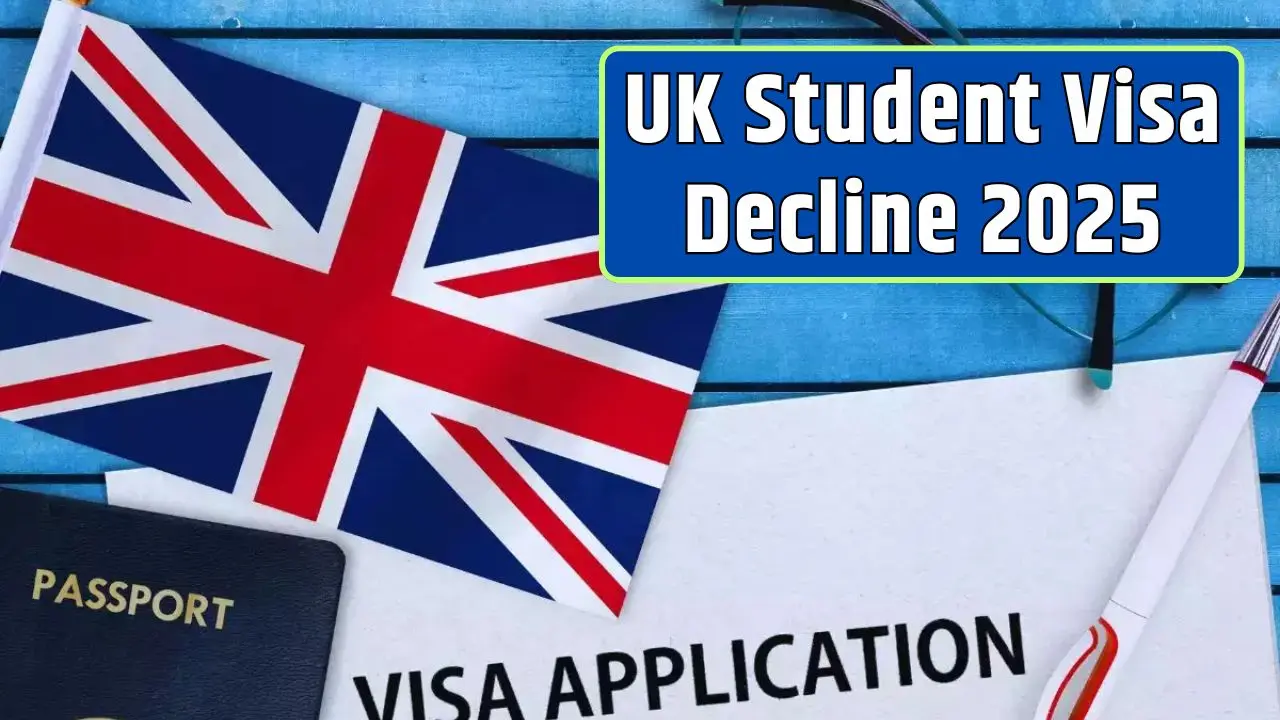The United Kingdom, a long-standing hub for international education, is experiencing a significant shift in immigration trends. Recent statistics indicate a noticeable decline in the issuance of student visas, sparking discussions about the factors driving this change and its implications for the education sector and broader economy.
Decline in Student Visa Issuance
In the latest reports from the UK Home Office, the number of student visas issued has seen a substantial drop compared to previous years. This decline comes after years of steady growth, which positioned the UK as one of the top destinations for international students.
The reduction in student visa approvals affects applicants from various countries, with significant decreases noted among students from South Asia, Africa, and parts of the Middle East.
Reasons Behind the Decline
Several factors contribute to this downward trend in student visa issuance.
One of the most significant is the UK government’s tightening of immigration policies. New regulations aim to control the inflow of international students, particularly those enrolling in short-term or low-tier courses.
Residency problems on critical visas now claim a dependent element of eligibility. Like many others, they now are facing problems in bringing dependents at all, making the UK less attractive to many students, especially students from countries where family migration normally occurs.
The education and cost of living in the UK, rising day by day, are also factors for many students. Most times, international students find it difficult to cope with the expense when their home currencies are under pressure against the mighty pound.
Moreover, increased competition from other countries, such as Canada and Australia, have influenced students’ decisions. The better immigration pathways, including work and permanent residence opportunities, make these countries alternative destinations for students in place of the UK.
Implications for the Education Sector
A direct downstream effect on UK universities and colleges is the decrease in student visas. Many university budgets are predicated upon foreign tuition fees. In turn, a diminishing pool of international students could lead to financial hardship for institutions, particularly those outside of the Russell Group.
Adaptations to the shift include increased emphasis on domestic recruitment and at least heightened partnerships with foreign institutions in exchange-type programs to attract students.
Diversity within the student body will also suffer from the shift, diversity which, within the UK campuses, goes further to provide considerable cultural and intellectual vibrancy.
Economic Impact
International students contribute billions of pounds annually into the UK economy from tuition fees, accommodation, and living expenditures. Therefore, a reduction in student numbers can influence the local economy of student towns dependent on student spending.
Government Response
Alluk governments engage to make the country remain globally competitive in education, focusing on creating initiatives like the Graduate Route visa open to international students to stay on and work here in the UK for up to two years post-study.
However, there is pressure from the government to match all these demands with immigration control with which these measures were sensitively put by most people in the public with regard to immigration.
The Future of Immigration Trends in the UK
A turning point is marked in the UK immigration landscape by the fall in student visas issued. Under challenging circumstances, opportunities still exist in moving forward within the education sector and among policy makers.
This will be through providing affordability, increased post-graduation opportunities, and showcasing the UK as the most inclusive destination international students can consider returning to when comparing options.
Conclusion
Whatever recent news such as the decline in student visas issued in the UK indicates is a state of continuous change in immigration trends induced by policy shifts, economic factors, and competition worldwide. This is a challenge for the education sector and the economy generally, but through strategic interventions, it can be arrested such that the UK continues gaining high ground as an international study destination. Understanding and addressing the causes behind such changes is a must to smoothly ride this transition.




